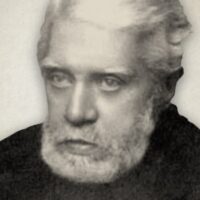
Article 7 – The Intercession Of Christ
Articles Of The Faith And Order Of A Primitive Or Strict And Particular Baptist Church Of The Lord Jesus Christ, Based On The Declaration Of Faith And Practice Of John Gill, D. D., 1720
VII. The Intercession of Christ.
We believe that the Lord Jesus was raised from the dead,[1] and has ascended in His whole person to Heaven,[2] where He intercedes, as our great High Priest, for those whom the Father gave Him, and whom He redeemed with His blood, (and no others,) and that His pleas are perpetual and prevalent,[3] and we hold that the Holy Ghost works on earth in concurrence and harmony with His advocacy in Heaven, progressively accomplishing the salvation of those for whom He died, to His abundant satisfaction and glory.[4]
——————————-
[1] See the accounts given by the Evangelists, 1 Cor 15:3-7
[2] Acts 1:9-11; 1 Pet 3:22
[3] Zech 6:13; Rom 8:34; Heb 1:3, 8:1; 10:12; Jn 17:9; Ps 1:8
[4] Ps 110:3; Is 49:8,9; 53:10,11; Jn 16:13,14; 1 Cor 15:25; Phil 2:9,10,13; Heb 12:2; Jude 24
————————————————————–
Annotations:
This Article expresses our belief concerning the ministry of Christ in Heaven, and the Work of the Holy Spirit on earth.
It insists that the present intercession of Christ (like the satisfaction He made of sin on the cross) is for His elect only, and that His pleas are invariably prevalent and effectual. It is opposed to the Arminian or Pelagian idea that He is the official representative of all men, ana desires that all men may be saved. It thus embodies a distinguishing doctrine of the Particular Baptists, and demands much attention and the boldest enforcement.
It also testifies to our belief in the harmony which exists between the advocacy of Christ and the operations of the Spirit. It is a popular belief that the Holy Ghost “strives” with all men; making kindly, but often ineffectual, attempts to induce them to accept the offer of the Gospel; give their hearts to God; close with Christ, and thus obtain salvation. To these errors, we, as Strict and Particular Baptists, are earnestly opposed. Scriptures are indeed cited in support of them. These are fully dealt with in the Author’s “Manual of Faith and Practice”, page 111.
“To His abundant satisfaction and glory.” Many popular hymns deny this—representing Christ as being solicitous to save sinners who will not come to Him, and that He is mortified and enraged at their refusal to comply with His terms.
This libel on the character of the Saviour we also resolutely reject—as the article in question asserts.
Serious as are the above errors, texts are cited in their support, which are dealt with in the “Manual of Faith and Practice,” pages 86 and 111 to 119.
William Styles (1842-1914) was a Strict and Particular Baptist preacher. He served as pastor for the churches meeting at High Wycomb (2 years); Lower Holloway (3 years); Providence, Islington; Keppel Street (10 years); West Ham (4 years); West Hill, Wandsworth (6 years). After his conversion to Christ while sitting under the ministry of the Congregationalists, he was baptized by C. H. Spurgeon and became a member of the Metropolitan Tabernacle. During this time, he enrolled in the Pastors’ School. He eventually embraced high views of sovereign grace and strict communion principles, thereby leading him to join the Strict and Particular Baptist denomination. He was an outspoken opponent of the pernicious teachings of duty-faith and the free-offer, believing that no church, minister or member had a right to identify as “Strict and Particular Baptists” if holding to those errors. He took a leading role in the Metropolitan Association of Strict Baptist Churches and was a supporter of the Strict Baptist Mission. Both of these organizations now embrace the errors of duty-faith and the free-offer, standing opposed to the faith and order of the Strict and Particular Baptists.
William Styles, A Guide To Church Fellowship (Complete)
William Styles, A Memoir of John Hazelton (Complete)




